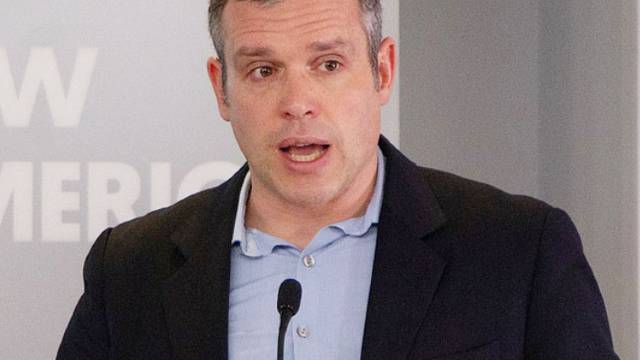Losing Major Fishback
By Carol Stiffler
Newberry residents have been shocked to learn of the death of Major Ian Fishback, a 1997 graduate of Newberry High School.
Fishback had a long career of military and had been a high-profile figure at times. He had returned to Newberry in the summer of 2021, and many residents became aware that he was struggling with his mental health. His physical health appeared to be excellent.
Fishback was a resident in a care facility at the time of his death, and a cause for his death has not been identified. His family has requested an autopsy, according to his sister, Jazcinda Jorgenson.
Though his death was sudden and surprising, his family and friends are certain he didn’t take his own life. His family has issued a statement which reads:
We know the community supported Ian through his recent difficult times. He faced many challenges and many of us felt helpless. We tried to get him the help he needed. It appears the system failed him utterly and tragically. There are many questions surrounding his death and the official cause of death is unknown at this time. We can assure you that we will get to the bottom of this. We will seek justice for Ian, because justice is what mattered most to him.
“It was not a suicide,” longtime friend Justin Ford said adamantly. “He was not suicidal.” Ford said Fishback had been very tired in the days before his death, even to the point where he had difficulty walking to breakfast in his facility. He is certain Fishback didn’t have the energy or desire to end his life.
Ford had recently launched a GoFundMe campaign, setting out to raise $60,000 to get Ian into the elite Austen Riggs psychiatric facility in Massachusetts. Fishback was on board with the opportunity, Ford said, which Ford believed was Fishback’s “last, best chance” for recovery.
The fund had raised more than $18,000 in the weeks before Ian’s death, and Ford read each donor’s comment to Fishback over the phone. His friend was encouraged, Ford said, and had hope for a better future.
Fishback had a remarkable life, and his desire for excellence was apparent when he was young. As a high school student, he drove himself with a level of discipline rarely seen. After graduation, he went straight to the United States Military Academy West Point and continued to excel, rising through the Army ranks. He served in three combat tours in Iraq and one in Afghanistan, and eventually became a West Point instructor. He reached the office of Major before facing a test that ultimately ended his military career.
Fishback, by then a leader of a battalion in the 82nd Airborne Division, was instructed to have his troops torture detainees in Iraq to gain information that would help the U.S. win the war in Iraq. This method was used to get valuable information quickly after capturing a detainee, Fishback told The Newberry News in an earlier interview. But he disagreed with the conduct and sought clarification on what was lawful and humane treatment of detainees.
After following protocol for Army concerns and receiving an unsatisfactory response, Fishback appealed to then U.S. Senator John McCain in an open letter written in 2005 that vaulted Fishback into the national spotlight.
Rather quickly, the Detainee Treatment Act was passed by Congress later that year. But the atmosphere inside the Army changed for Fishback, and he took an opportunity to retire when it was offered.
He earned a Ph D in philosophy from the University of Michigan, finishing his studies just as the COVID-19 pandemic took hold on the world.
Fishback said in an earlier interview with The Newberry News that he was treated so terribly after writing to McCain, in situations that sometimes lasted for years, that he sought to give up his U.S. citizenship and live in Sweden. He planned to work from there to preserve human rights.
Fishback did go to Sweden earlier this year, only to return home soon after the promised job didn’t materialize. He lived briefly in Newberry this summer, back in the town that only knew him as excellent, though his mental condition was slipping. He denied any diagnosis of PTSD, and was intently focused on righting U.S. actions he viewed as war crimes.
That was “Ian being Ian”, according to Ford. “He was never not Ian,” he said, though he knows Fishback’s actions were sometimes alarming.
Ford knows Fishback is most often remembered for his heroic acts and for all the ways he seemed superhuman, but Ford is now clinging to the moments that showed Fishback was also preciously human.
Ford was on the Newberry High School wrestling team with Fishback, and the two were usually paired up to practice against each other.
“We had special wrestling movies designed against each other,” Ford said. “He would take you down, let you up, take you down, let you up, which was so tiring.”
Ford said Fishback almost always won, in part because he was a better wrestler, but also because he’d made himself so strong. He’d get the keys to the weight room, Ford said, and let himself in to lift.
“He worked his tail off to get everything he ever had,” Ford said.. “This guy just worked, worked, worked, worked, worked.”
Fishback, it turns out, also lived by the words he used to conclude his 2005 letter to Senator McCain:
“If we abandon our ideals in the face of adversity and aggression, then those ideals were never really in our possession. I would rather die fighting than give up even the smallest part of the idea that is ‘America’.”
A death notice for Fishback appears on page four of this issue. A full obituary will be printed at a later date.












